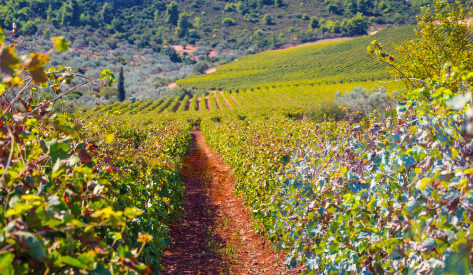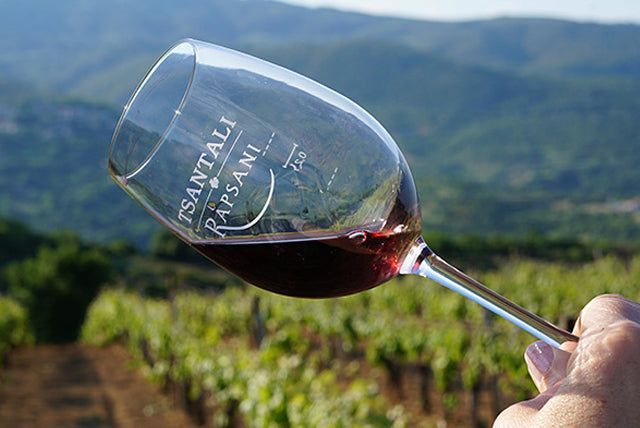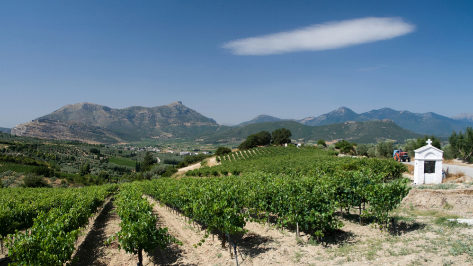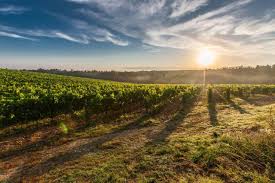
Subscribe to our newsletter
Greece and Turkey
Ancient Winemaking Reimagined for Modern Investments
5/9/2024
Introduction: Uncovering the Roots of Viniculture
Nestled between the crossroads of East and West, Greece and Turkey not only share borders but also a deep-rooted history in winemaking that dates back to the ancient civilizations that once thrived in these lands. Today, as global wine enthusiasts seek new territories, these nations are revealing the untapped potential of their indigenous varietals and centuries-old winemaking traditions. This newsletter explores the resurgence of these ancient winemaking regions, the unique practices that define them, and the burgeoning investment opportunities they present.
The Winemaking Heritage of Greece: A Blend of Ancient Varietals and Modern Techniques
Greece's contribution to winemaking is monumental, housing some of the world's oldest known grape varieties like Assyrtiko and Xinomavro. The renaissance of Greek wine is underpinned by an elegant synthesis of ancient techniques and modern technologies:
Indigenous Varietals: Focus on Assyrtiko from volcanic Santorini, offering crisp acidity and minerality, and Xinomavro from the lush valleys of Naoussa, producing wines with robust tannins and complex aromas.
Innovative Practices: Emphasis on organic and biodynamic farming that echo ancient methods but are adapted to contemporary standards.
Geographical Advantage: The diverse landscapes from sun-drenched Mediterranean isles to rugged northern terrains provide optimal conditions for a variety of wine styles.




Turkish Winemaking: A Tapestry of History and Flavor
Turkey's winemaking history is as old as civilization itself, with the Hittites cultivating vineyards as early as 2000 BC. Despite political and cultural hurdles, the Turkish wine industry is experiencing a revival:
Native Grapes: Highlighting Öküzgözü and Narince, which deliver a palette of unique flavors from vibrant reds to aromatic whites.
Craftsmanship: Traditional winemaking practices are being revitalized, integrating both ancestral and modern winemaking techniques.
Cultural Renaissance: The growing local and international interest in Turkish wines is fostering a new wine culture focused on quality and distinctiveness.
Key Producers to Watch
Greece: Domaine Sigalas and Gaia Wines lead in quality, showcasing how effectively ancient varietals can be adapted to modern palates.
Turkey: Doluca Wines and Kayra Wines are pioneering quality improvements and international marketing, bringing Turkish wines to the forefront of global markets.
Investment Opportunities: Vineyards on the Verge of Global Recognition
Investing in Greek and Turkish wineries offers promising prospects. Factors contributing to this include:
Market Trends: There is a rising trend towards unique, story-rich wines that offer a different palette of flavors and histories.
Tourism Synergy: Both countries enjoy robust tourism industries, which boost local wine consumption and global curiosity.
Regulatory Environment: Understanding the nuances of local regulations is crucial, but recent changes are making it easier to invest and export.






Conclusion: A Promising Future for Wine Investment
The winemaking sectors in Greece and Turkey offer fertile ground for investors ready to dive into markets ripe with history and potential. As these regions marry their rich past with innovative future strategies, they stand to not only enhance their global wine standing but also offer lucrative opportunities for those willing to explore these ancient yet emerging wine havens.
Venture into the storied vineyards of Greece and Turkey to experience their unique wines firsthand. Consider the burgeoning investment opportunities as these ancient winemaking regions step onto the global stage. Subscribe to our insights, share your views on this vibrant wine renaissance, and perhaps, uncork a bottle of the finest Greek Assyrtiko or Turkish Öküzgözü to savor the rich history and promising future of these lands.


